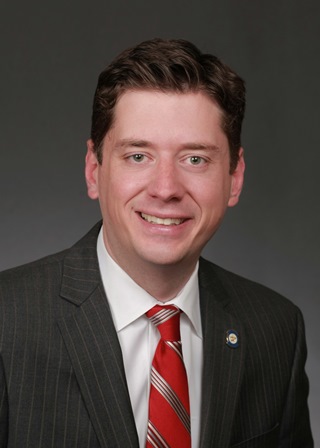In order to provide equal access and equal opportunity to people with diverse abilities, this site has been designed with accessibility in mind. Click here to view
Improved State Budget Savings Plan Heads to Governor
 Sen. David Holt
Sen. David Holt
The Senate has passed HB 2763, which creates the Revenue Stabilization Fund, with the intent of preventing future budget shortfalls like the one the state is currently experiencing. The authors are Sen. David Holt, R-Oklahoma City, and Rep. John Michael Montgomery, R-Lawton. It passed the Senate 44-2 and now awaits the governor’s consideration.
“One lesson I think we learned this year is that our current savings strategy is inadequate to the challenges posed by an energy-based economy,” Holt said. “This legislation will increase our savings, which will give us a tool to address future budget shortfalls. It is forward-thinking and is an appropriate response to the lessons of this year’s budget crisis.”
"We have seen this year the need for a long term strategy on how to manage our revenue and ensure a consistent ability to maintain core government services,” Montgomery said. "This is part of establishing a vision for the state of Oklahoma in which we are able to take care of providing services without hampering taxpayers in times of distress."
HB 2763 creates the Revenue Stabilization Fund, which could serve as a first resort when revenue failures and projected shortfalls occur. It does not save any funds until revenues have returned to the same levels as Fiscal Year 2015. Savings would cease in any fiscal year in which there is a revenue failure. The fund would receive excess revenues from the gross production tax above a five-year rolling average. It would also receive 75 percent of excess revenues from the corporate income above a five-year rolling average. The remaining 25 percent of those excess revenues from the corporate income tax would deposit in the Rainy Day Fund. In the case of a revenue failure, one-quarter of the fund could be spent by the director of OMES and one-quarter of the Fund could be spent by the Legislature. In the case of a projected budget shortfall in the upcoming fiscal year, one-half of the fund could be spent by the Legislature. Every five years, OMES will submit a report on the fund’s effectiveness.
Holt and Montgomery were also the authors of Senate Joint Resolution 44, which would have asked the people of Oklahoma if they would like to increase the cap on the Rainy Day Fund by measuring it against the total state budget. That measure failed in the House.
“Though it was disappointing to many that SJR 44 did not advance, HB 2763 is also an excellent response to the problem of not having an adequate savings account,” Holt said. “At the beginning of this session, it was my goal to help Oklahoma get on a better savings plan, and I think with HB 2763, we have definitely accomplished something that future generations will appreciate. I want to thank all those who made it possible to advance this complex but important idea, especially Senator Mike Mazzei, the dogged Rep. John Michael Montgomery, and the Pew Charitable Trusts.”
 Oklahoma Senate
Oklahoma Senate

